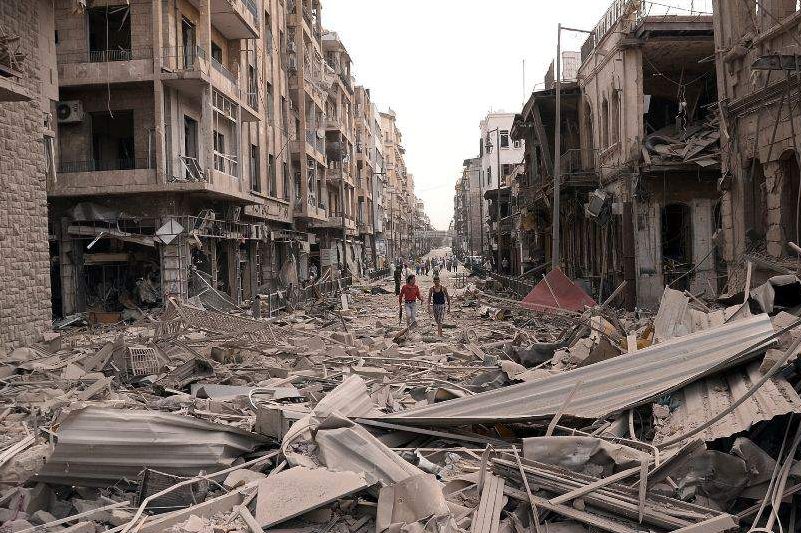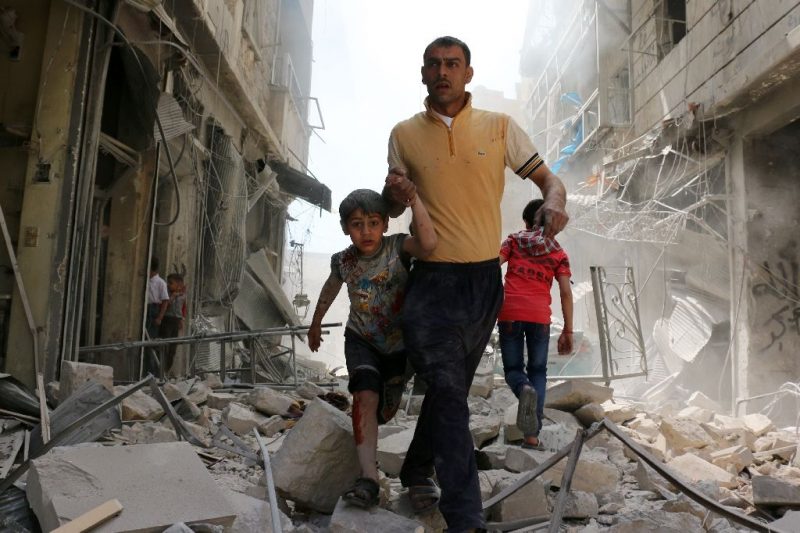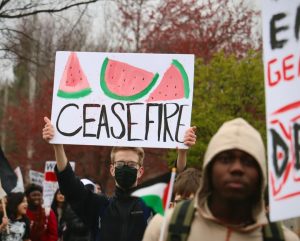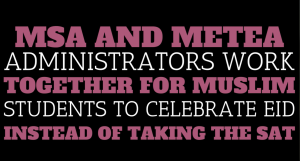What do you know about Aleppo? That it’s Syria’s most populated city? Perhaps that it has been the subject of ongoing attacks and battles? Or maybe you know about that video showing a four year old boy sitting in an ambulance, in shock and covered in blood after being pulled out of the rubble following an airstrike.
That boy, Omran, was only a glimpse into the humanitarian crisis that is happening everyday in Aleppo. Four years of endless destruction and conflict have left devastating effects on the city. Airstrikes occur nearly everyday, killing civilians and destroying homes. 4,500 children have been killed in Aleppo alone, and 400,000 people in Syria have died in the past five years.

Aleppo is one of the oldest cities in the world, and before recent events, was not only Syria’s largest city, but also an important trade and tourist spot, as well as a key location for production in Syria. Now, it has found itself among constant fighting and destruction. In just 80 days of fighting, over 6,000 people have been injured or killed. In addition to this, hospitals have been put out of commision, and the population of the city has been deprived of drinking water. Little humanitarian aid has been provided to the city – less than 30 doctors are left in Aleppo, and only a few hospitals remain. Many were targets of bombings and airstrikes and are now no longer operational.
To add to the hopelessness of the situation, the White House abandoned talk of cease-fire in Syria with Russia following exchanges of blame for failed diplomacy. Meanwhile, Syria’s dictator Bashar Al-Assad continues to lay devastation to his country and punish the people for starting an uprising, resorting to using chlorine gas and barrel bombs.
As if Assad’s attacks weren’t enough on their own, Russia’s president, Vladimir Putin is also assisting in the destruction of Aleppo. The Syrian and Russian government have an agreement that the latter would assist Syria when they ask for aid; however, the idea of “aiding” is being stretched quite a bit. Putin is “aiding” Assad by providing arms and ammunition in addition to using Russian Air force alongside that of Syria’s to bomb Aleppo. Two countries worth of power being used against one explains why there are predictions that the city will be completely leveled in a few months. Russian and Syrian government forces are destroying all forms of resistance and killing and maiming countless women, children and elderly who are stuck in Aleppo. This action alone by the Russian and Syrian governments tantamounts to genocide.
Citizens of Aleppo choose between staying in their city or fleeing the conflict, but neither choice bodes well for them. Staying in Aleppo means living in a warzone, where the next day is never guaranteed. Fleeing means escaping the turmoil and carnage, but it isn’t as easy as just walking out and going to another country. It means escaping on small boats meant for thirty in groups of hundreds. In addition to that, there is the fear of not being welcomed somewhere else. The surrounding countries are not as welcoming as Syria has been in the past, and the countries that can take in more refugees, such as the US and UK, are not doing much to help. “Since 2011 the UK has only taken about 8,000 refugees,” Salil Shetty of Amnesty International said. Over 4,000 Syrian refugees have died trying to flee the country across the Mediterranean ever since conflict started in 2011. People saw the sad reality of what it is like to flee the country when the image of a dead Syrian boy who washed ashore on a Turkish beach went viral on the Internet about a year ago. The boy, Alan Kurdi, was only three years old and had been trying to escape with his family.

The conflict in Syria is well known to most people, whether you keep up with the news or not. It finds its way into social media feeds, bringing awareness to the general public and sparking outrage, discussion, and talk of relief efforts. Students and teachers at Metea shared their thoughts on the situation in Aleppo.
“It’s terrible that their homes are being destroyed and that they aren’t being treated with dignity in the places they’re seeking shelter in,” said senior Carlos Francisco.
“I think it’s senseless and the rest of the world needs to be more receptive of refugees because they’re people trying to escape turmoil, not terrorists with an ulterior [motive] like some people think,” said senior Angela Brown.
“Aleppo is a humanitarian tragedy and most of the world keeps on asking the question, what can the US and other countries do to help?” AP U.S. History and Government teacher Scott Gregory said. “Unfortunately, in the U.S., presidential election politics is getting in the way. Neither candidate wants to go on record to say what the U.S. government really needs to do, and that is more of a direct military intervention. That would bring us down the path of possible conflict with Russia.”
Other teachers shared similar thoughts. “The situation in Syria is a humanitarian crisis. I hope that resolution to the conflict can be achieved soon and peace wins out over war,” AP U.S. History teacher Dave Luedtke said.
The situation in Aleppo is dire. The people there live in the midst of a war and crisis with no escape. “What doesn’t directly affect most Americans, takes a policy “back-seat” to other pressing issues,” Gregory said. “It’s unfortunate, because the people of Aleppo have been suffering unbelievable heartache and it is a humanitarian crisis, the likes the world hasn’t seen in a long time,” he said. The city will continue to face destruction, unless efforts are made to cease attacks and provide aid to the people. Mr. Staffan de Mistura, UN Special Envoy for Syria, warns that “in [a] maximum [of] two and a half months, the city of Eastern Aleppo at this rate may be totally destroyed.” If the news about suffering and videos of bloodied children crying for their parents can’t prompt people to help, then what hope does Aleppo have?







Killian Kenny • Jan 12, 2017 at 7:44 am
Well here we are 3 months later, is it totaled yet?
69283018 • Oct 12, 2016 at 10:29 am
I’m going to voice my opinion here, even if I get a little bit of backlash.
I am glad we haven’t taken in many refugees.
For one, look at Sweden, Germany, Finland, Austria, the list goes on. Tragic events happen their every day, of which I will not go into detail as it is not school appropriate.
Then, look at Poland and Hungary, and how they are not taking in refugees. See the clear difference? Polish and Hungarian people are living regular lives while the rest of Europe is suffering.
Thomas Carragher • Oct 12, 2016 at 8:03 am
This is just distrubing to see what is going on in Syria with all the airstrikes and the effects on refugees in Syria and they don’t have the aid. It’s like the late 70’s all over again.